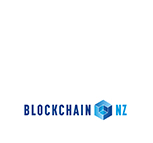This month’s newsletter introduces two game-changing, real-world blockchain applications that are set to disrupt business-as-usual in the areas of business, governance, and democracy. It’s also a call to raise awareness of Blockchain technology beyond crypto and finance and to promote more training and learning opportunities in the wider community.
Digital Democracy
Last month, Blenheim held the Local Government conference, which prompted further discussions around the poor turn-out at local government elections. This poor turn-out has been declining for a decade, with only 41.7% of eligible voters exercising their democratic right in 2019 and is due partly to the postal voting system used. A UK Censuswide study in 2017 revealed that 43% of millennials had never used the postal service to send a card, letter, or parcel.
This has raised the prospect of electronic voting for the next election in October 2022. The Prime Minister has previously indicated her desire for on-line voting to become a reality in 2022. Trials in 2016 and 2019 had failed to make any progress, due to concerns over the security and vote integrity, as well as the high costs to establish an electronic system that could be trusted.
A voting platform built on Blockchain technology addresses these concerns.
Inspired by this renewed interest in secure electronic voting, Blockchain New Zealand recently had a Zoom call with the kiwi founder and CEO of the Melbourne based blockchain digital voting venture, Horizon State (horizonstate.com), Tim Goggin. Tim describes the potential of blockchain in our electoral voting system: “Our system is operational and already suited for government clients both large and small and has already been deployed in the past for a New Zealand government department, an Australian local council, and the South Australian state government. Adding NZ council elections as the technology partner by 2022, is very realistic.”
The public are also supportive of digital on-line voting as evidenced by polls conducted in Auckland in 2016, where 74% were in favour, and by Australia Post, where 73% of Australian residents were also in favour.
Tim highlights that paper and postal voting solutions have a track record of being slow, inefficient, costly and error prone. By way of example, New Zealand’s 2019 local council elections experienced some controversy due to the lack of finality and reliability surrounding the counting of paper votes. This was seen where a recount of a council seat in Whakatāne led to a judge ordering a ‘different interpretation’ of a single paper vote, that overturned an earlier coin-toss conclusion. With so much reform currently happening in the local government sector, with substantial water reforms and potential council restructuring, it’s important for democracy that there is good representation across the country and across all eligible age groups. A blockchain technology voting solution puts voting power into the hands of voters, by way of a mobile device and provides a high level of transparency that builds trust with voters, while preserving their privacy and security. For those unfamiliar with mobile/computer technology, traditional polling stations with support staff can still be retained at public libraries and community centres.
The Internet Computer
The other game-changing technology introduced here, which has the potential to disrupt the conventional IT industry, is the open-source Internet Computer from DFinity, claiming to be the Blockchain Singularity. This Zurich based project has been in development for almost five years and effectively extends the functionality of the public internet into a secure global computing platform. The potential of the Internet Computer is its ability to host websites, store data and run enterprise applications at web speed, across a decentralised network of independent data centers (or node machines). As the applications and data are stored and executed in cannisters (smart contracts), the data and functions are cryptographically secured from the outset, using Dfinity’s bespoke programming language, Motoko. This approach strips out layers of complexity and costs. The associated ICP token has been created to act both as a governance token, where holders can lock their tokens in exchange for voting rights in the future development of the protocol, and as means of funding activities on the network. The governance of the Internet Computer is democratically controlled by the Network Nervous System (NNS), where participants can stake ICP tokens to take part in decision-making.
The Internet Computer also has its own Internet Identity protocol, which dispenses with the need for creating and remembering secure passwords. (Identity.ic0.app). This relies only on a short identity number, with either a biometric feature (face or fingerprint) or a security dongle (such as a Yubikey or hardware wallet). The user is in full control of this secure identity feature that operates across all of their desktop and mobile devices.
Since the DFinity Genesis launch in May this year, the platform is scaling rapidly and hosts a number of blockchain applications, such as DSCVR, which is similar to Reddit, Fleek, a web hosting service, Distrikt, which is a user-owned version of LinkedIn, Openchat, a WhatsApp style messaging app and Origyn, an NFT exchange platform.
Dfinity has produced an explainer video that describes the Internet Computer in an engaging way and is well worth the investment of the two-minutes to watch.
In search of knowledge
A passion project of Blockchain New Zealand is to provide more training and learning opportunities within the business community, which is specifically suited to management, executives and those involved in the governance of New Zealand organisations. The objective is to raise awareness of the opportunities that blockchain technology presents and to advise on how to manage the threats that often accompany the introduction of disruptive technologies.
You can assist us in identifying the training needs of our members and their organisations by providing feedback and suggestions on how those needs could be best met, by emailing us at team@blockchain.org.nz
Ngā mihi nui,
John Mackie, on behalf of the team at BlockchainNZ
Please share our news and invite your team to subscribe here for their own free copy!






